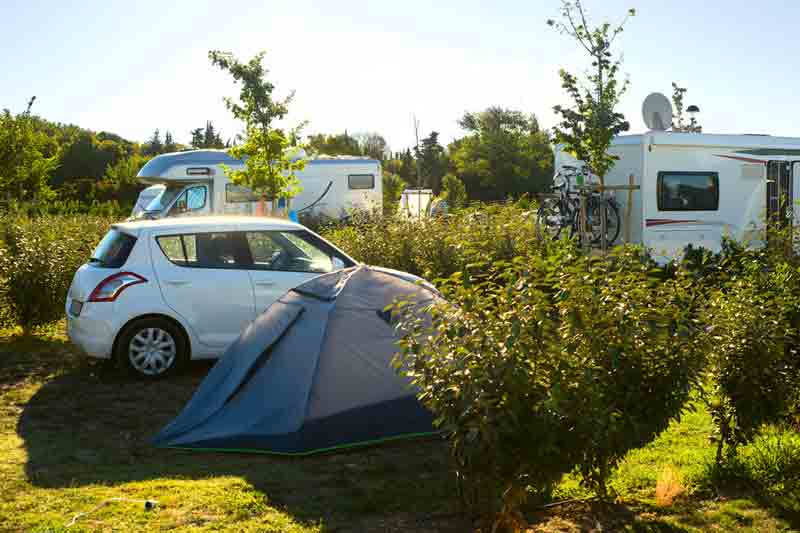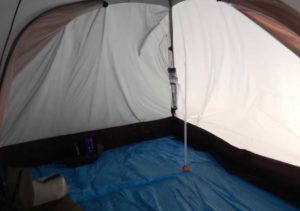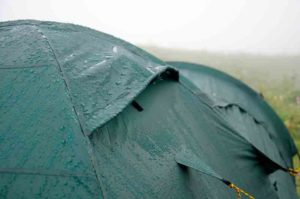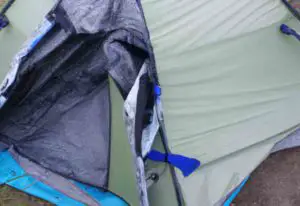When you are planning a backpacking trip, one of the most important decisions you will make is what kind of tent to bring. There are so many different options on the market that it can be difficult to decide which one is right for you. In this blog post, we will discuss all the different types of tents available for backpacking and help you choose the best option for your needs!
What is a backpacking tent and what are its main features
A backpacking tent is a portable shelter that you can take with you on your backpacking trips. It typically weighs less than five pounds and can be packed into a small bag for easy transport. Most backpacking tents are made from lightweight materials such as nylon or polyester so that they are easy to carry. The main features of a backpacking tent are its small size, lightweight, and portability.
Backpacking tent Types
There are three main types of backpacking tents: freestanding, semi-freestanding, and non-freestanding.
- Freestanding tents are the most popular type of tent for backpacking because they are easy to set up and do not require any ropes or stakes to secure them.
- Semi-freestanding tents are similar to freestanding tents but usually have one or two poles that must be staked into the ground in order to provide stability.
- Non-freestanding tents are the lightest weight option but they require a lot more work to set up. They must be staked or tied down in order to provide stability and can be more difficult to set up in windy conditions.
Pros and Cons of using a Backpacking Tent?
Pros:
- They are easy to set up and do not require any ropes or stakes to secure them.
- They are typically made from lightweight materials such as nylon or polyester, making them easy to carry.
- They are typically small in size, which makes them easy to pack into a small bag for transport.
Cons:
- Backpacking tents can be more expensive than other types of tents.
- They are typically smaller in size, which means that they may not be suitable for larger groups of people.
- They can be more difficult to set up in windy conditions.
Let’s discuss the different features to look for when choosing a tent!
Size – The first thing to consider when choosing a backpacking tent is the size. You want to make sure that the tent is large enough for you and your gear but not so large that it is difficult to carry. The average two-person backpacking tent weighs between three and five pounds.
Weight – The weight of your tent will be a major factor in how easy it is to carry on your backpacking trip. If you are planning on doing a lot of hiking, you will want to choose a lighter-weight tent.
Materials – The material of your tent will affect both the weight and durability of your shelter. Nylon and polyester are the most common materials used in backpacking tents because they are lightweight and durable.
Price – Backpacking tents can range in price from $100 to $500. It is important to find a balance between price and quality when choosing your tent.
What Is the Difference Between a Backpacking Tent and A Camping Tent?
The main difference between a backpacking tent and a camping tent is the weight and portability. Backpacking tents are made from lightweight materials and can be packed into a small bag, making them easy to carry on your backpacking trips.
Camping tents, on the other hand, are typically heavier and bulkier, making them more difficult to transport.
So, what is the best backpacking tent for you? The answer to this question depends on a number of factors such as the type of trip you are taking, the amount of gear you need to bring, and your budget.
Do You Need a Backpacking Tent?
Backpacking tents are designed to be lightweight and compact, making them easy to carry with you on your hikes. They provide shelter from the elements, protecting you from wind, rain, and snow. Most backpacking tents also have a bug mesh netting to keep bugs and other pests out.
When choosing a backpacking tent, it’s important to consider the size of the tent. Tents come in a variety of sizes, from one-person tents to three-person tents. It’s important to choose a tent that is big enough for your needs. If you’re camping with friends or family, make sure to choose a tent that can accommodate everyone.
What Is the Difference Between Backpacking and Camping?
There is a lot of overlap between backpacking and camping, but there are some key differences. Backpacking generally refers to hiking with a backpack that contains your camping gear, while camping usually means setting up camp in one spot and staying there for an extended period of time.
Camping can be done in a wide variety of places, from tents set up in the woods to RVs parked at campgrounds. Backpacking is more limited in where you can go because you need to carry all your gear on your back.
Camping is also less expensive than backpacking since you don’t need to buy as much gear. And finally, camping is generally easier and less strenuous than backpacking – you don’t have to hike for miles with a heavy backpack!
Is Backpacking Considered Camping?
Camping and backpacking are two different activities that people use to enjoy the outdoors. Camping typically refers to spending one or more nights outdoors, in a tent or other temporary shelter, with no amenities beyond what is carried in with the camper. Backpacking generally means carrying your shelter and provisions on your back for multi-day trips.
What Is the Difference Between Backpacking and Hiking?
The main difference between backpacking and hiking is that backpacking typically involves carrying more equipment and supplies, while hiking involves less gear. Backpackers often carry tents, sleeping bags, cooking stoves, food, and water. In contrast, hikers may only carry a water bottle and snacks.
Backpacking is also typically done over longer distances than hiking, often spanning many miles in a day. Additionally, backpackers often seek out more challenging terrain than hikers. Finally, backpackers sometimes spend nights camping out in the wilderness, while hikers typically end their hike at the end of the day.
Can You Backpack with A Car?
Technically, you can backpack with a car, but it’s not advisable. The reason being is that carrying a large load on your back puts a lot of strain on your body, which can lead to pain and injuries. A car, while it may be more comfortable to carry the load than if you were to carry it on your back, puts even more strain on your body because of the extra weight.
How Do You Enjoy Backpacking?
Backpacking can be a great way to see the world and explore new places. It’s also a fantastic method to get some exercise and fresh air. Here are some tips on how to enjoy backpacking:
- Plan your trip well. Make sure you know where you are going and what the terrain will be like. This will help you pack the appropriate gear and food, and also avoid getting lost.
- Choose your backpack wisely. A good backpack will distribute the weight evenly, have comfortable straps, and offer enough storage for all of your belongings.
- Do not overpack! You will have to carry everything on your back, so only pack what you really need.
- Set up camp at a comfortable spot. Find a level area to pitch your tent and make sure there is plenty of ventilation.
- Enjoy the scenery! Take some time to appreciate the views around you and look for wildlife.
- Make sure to pack out all of your trash when you leave. Leave no trace!








